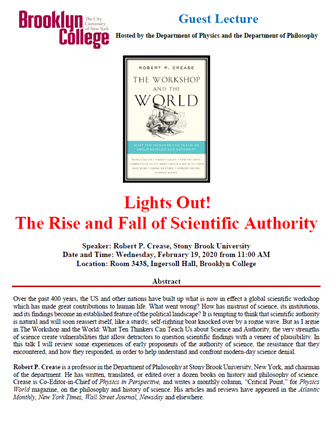Spring 2020 Events
Event Flier: Rational Love and Reciprocity in Sor Juana Inés de la Cruz (March 17)
Tuesday, March 17
Rational Love and Reciprocity in Sor Juana Inés de la Cruz
Speaker: Sergio Gallegos Ordorica (Assistant Professor, John Jay College of Criminal Justice (CUNY))
12:30–2 p.m.
3305 Boylan Hall
**We are sorry to announce that in light of the rapidly evolving circumstances surrounding the coronavirus (COVID-19), Sergio Gallegos Ordorica's talk "Rational Love and Reciprocity in Sor Juana Inés de la Cruz," which was scheduled to take place on Tuesday, March 17, has been cancelled and will be rescheduled at some future point in time. We apologize about the inconvenience, and hope you stay safe.**
In the Symposium, Socrates turns down Alcibiades' advances by stating that the relationship that he proposes involves requesting "gold in exchange for bronze" (218e), but he does not give further details on why he cannot reciprocate Alcibiades' love. In this talk, I argue that we can find in the works of the Novohispanic philosopher Sor Juana Inés de la Cruz (1648-1693) valuable resources (in particular, a distinction between different types of love) that enable us to understand better why Socrates is right in turning down Alcibiades since these resources suggest some plausible conditions under which a request for love should be acknowledged and reciprocated.
Event Flier: Thinking with Hannah Arendt and Walter Benjamin: What Does it Mean to Think Poetically? (March 11)
Wednesday, March 11
Thinking with Hannah Arendt and Walter Benjamin: What Does it Mean to Think Poetically?
Speaker: Samantha Rose Hill (Assistant Director of the Hannah Arendt Center for Politics and Humanities)
12:30–2 p.m.
Student Center, Occidental Lounge, Fifth Floor
Sponsored by: The Ethyle R. Wolfe Institute for the Humanities in cooperation with the departments of English, History, and Philosophy
In her introduction to Illuminations, Hannah Arendt writes: "What is so hard to understand about Benjamin is that without being a poet he thought poetically." Looking at their friendship in exile, Arendt's poems, and Benjamin's Theses on the Philosophy of History, Arendt and Benjamin offer us a way of thinking to resist the temptations of ideology, authority transmitted by tradition, and the demands of disciplinary thinking.
Samantha Rose Hill is the assistant director of the Hannah Arendt Center for Politics and Humanities, visiting assistant professor of Political Studies at Bard College, and associate faculty at the Brooklyn Institute for Social Research in New York City. She is the author of two forthcoming books: Hannah Arendt, a biography, and Hannah Arendt's Poems. She has written for the Los Angeles Review of Books, Public Seminar, OpenDemocracy, Theory & Event, Contemporary Political Theory, and The South Atlantic Quarterly.

Event Flier: Lights Out! The Rise and Fall of Scientific Authority (February 19)
Wednesday, February 19
Lights Out! The Rise and Fall of Scientific Authority
Speaker: Robert P. Crease (Stony Brook University)
Starts at 11 a.m.
3438 Ingersoll Hall
The following is the abstract provided by Professor Robert P. Crease (Stony Brook University) in regards to what he will be discussing:
Over the past 400 years, the United States and other nations have built up what is now in effect a global scientific workshop that has made great contributions to human life. What went wrong? How has mistrust of science, its institutions, and its findings become an established feature of the political landscape? It is tempting to think that scientific authority is natural and will soon reassert itself, like a sturdy, self-righting boat knocked over by a rogue wave. But as I argue in The Workshop and the World: What Ten Thinkers Can Teach Us about Science and Authority that the very strengths of science create vulnerabilities that allow detractors to question scientific findings with a veneer of plausibility. In this talk I will review some experiences of early proponents of the authority of science, the resistance that they encountered, and how they responded, in order to help understand and confront modern-day science denial.






